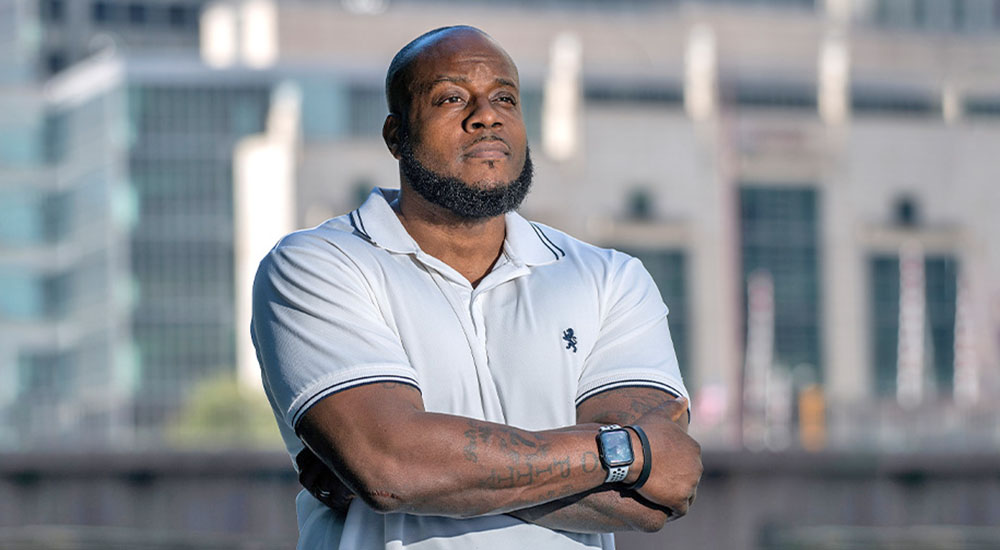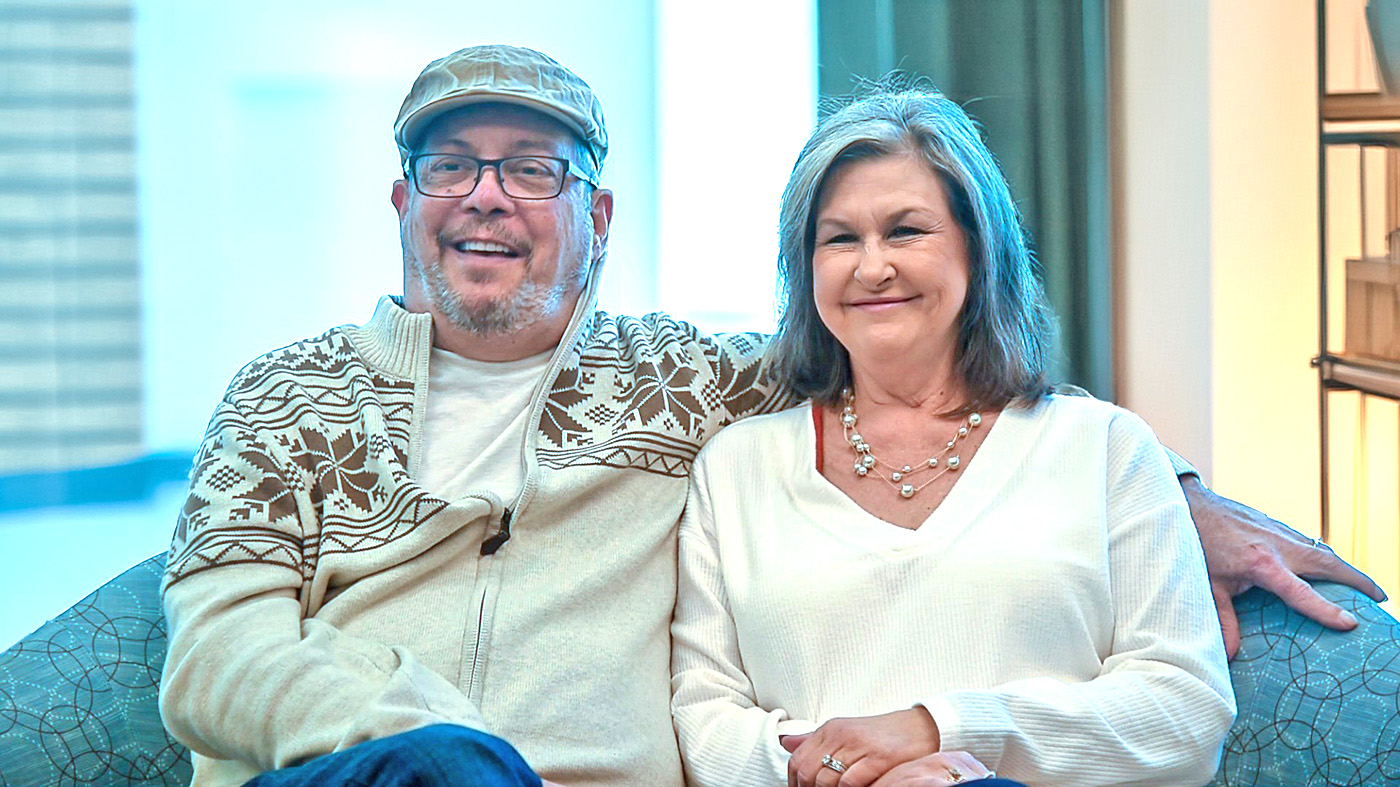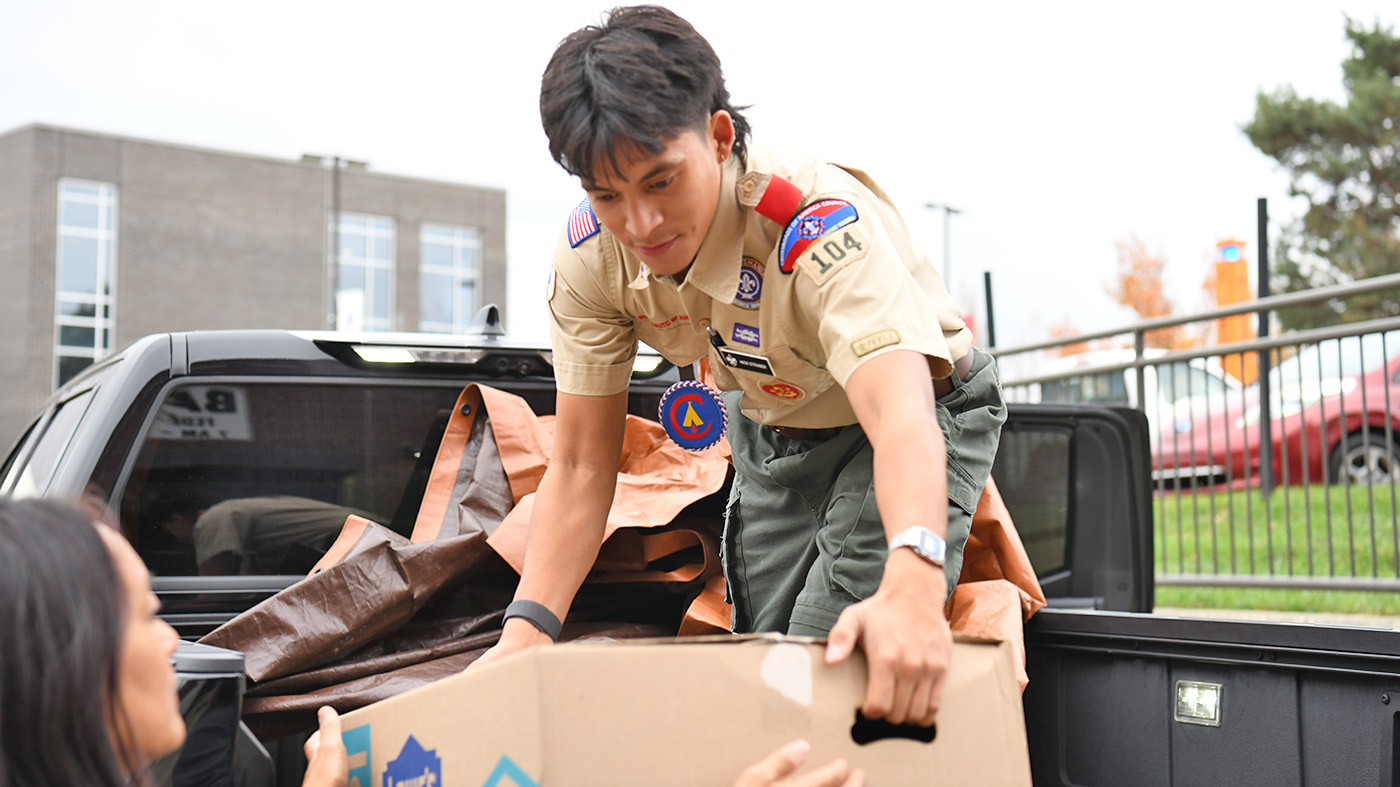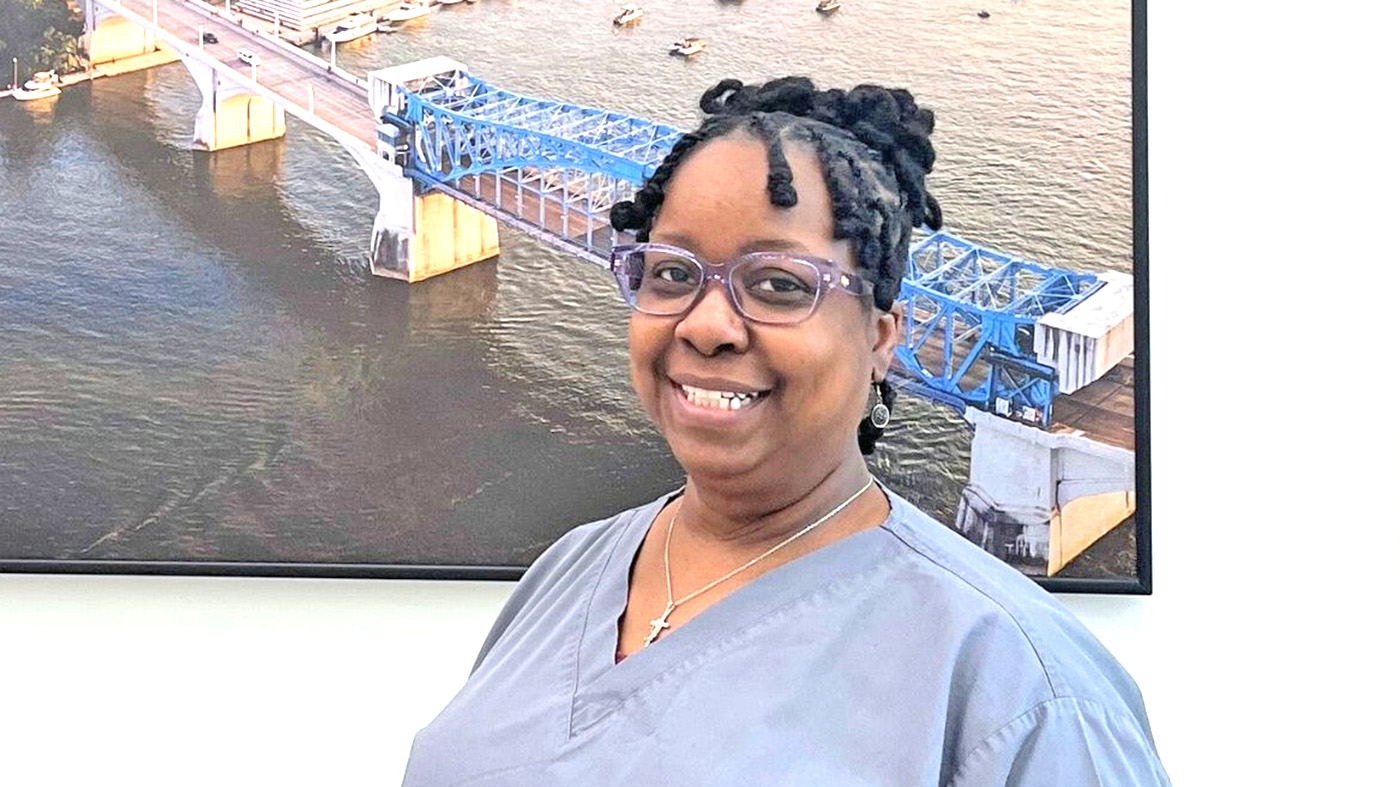Guns can be one of the toughest subjects to talk to Veterans about.
Many of the friends I served with own at least one. They know how to handle, shoot and store their guns correctly and safely due to their extensive training in the military. They’re responsible gun owners who have a right to own them.
But as someone who is passionate about Veteran suicide prevention, I have to be frank: Guns are used in the vast majority of Veteran suicides. Because of that, guns need to be part of any conversation—no matter how controversial—about preventing Veteran suicide.
Guns and suicide
We know guns play a large role in Veteran suicide because we study the data. Our most recent annual report of data confirmed guns continue to be a factor in most Veteran suicides. And that’s the case with suicides for U.S. adults overall, not just for Veterans.
According to the 2022 National Veteran Suicide Prevention Annual Report, when it comes to comparing Veterans and U.S. adults who died from suicide in 2020, guns were more commonly involved among Veterans (71.0%) than non-Veterans (50.3%). Overall, 53% of suicides involved guns, according to the Centers for Disease Control and Prevention.
Here’s some more general information about guns and suicide:
- The distribution of methods involved in suicides by non-Veteran U.S. adults changed from 2019 to 2020: Involvement of guns increased from 47.7% to 50.3%, while poisoning and suffocation fell, from 13.9% to 12.8% and from 29.7% to 28.4%, respectively.
- Broken down by sex, almost four times as many Veteran men killed themselves with a gun than Veteran women.
Taking action
With all this data in mind, you might be wondering what VA is doing to keep Veterans safe, lower suicide risk, and what, if anything, you can do to support the Veterans you know.
Evidence-based research and suicide analytics are the basis for all VA programs and initiatives, and one of our goals is improving Veterans’ lethal means safety.
“Lethal means” refers to objects that may be used by individuals experiencing a suicidal crisis. They can include things like guns, medications, alcohol, opioids, other substances, ropes, cords or sharp objects. If a Veteran is in crisis or is having suicidal thoughts, these items can become deadly if they’re easily accessible.
Because research shows many suicidal crises are brief, safe storage practices (like securely storing guns and ammunition separately) can save a life by increasing the amount of time and space between the suicidal impulse and access to a gun or other household risks.
That’s why it’s so important to spread the word about lethal means safety. Anyone can help. You don’t have to be an “expert.” One of the biggest things to remember (and share) is this:
Little steps that can increase the time and distance between a person who’s in suicidal crisis and their access to commonly used lethal means can reduce their risk for suicide and could save their life. Storing guns, medications and other lethal means properly can save lives. And so can you.
VA’s Keep It Secure program promotes awareness about the simple steps you can take to protect yourself and your family. Go to the website to find information about secure gun and medication storage, the warning signs of suicide, and how to find the support you or a Veteran loved one needs.
Prioritizing saving lives
I understand the complexity of the subject of guns. I see it from both sides. As a clinician, I want to keep Veterans healthy and safe. As a Veteran, I know guns are a core component of our culture. I also know Veterans are sometimes reluctant to talk about guns and fearful of reaching out for support in case authorities are sent to their location.
If you contact the Veterans Crisis Line, emergency services will only be sent to support if you’re in immediate danger or at risk of harming yourself or others.
With guns accounting for nearly 70% of Veteran suicide deaths, we must overcome the hurdle of talking about guns and find ways to save Veterans’ lives.
If you’re a Veteran in crisis or concerned about one, contact the Veterans Crisis Line to receive 24/7 confidential support. You don’t have to be enrolled in VA benefits or health care to connect.
To reach responders, dial 988, then press 1, chat online at VeteransCrisisLine.net/Chat, or text 838255.
Topics in this story
More Stories
After battling heart failure and a stroke, one Veteran received a heart transplant at the Michael E. DeBakey VA.
Boy Scout Nicholas Straber has undertaken a community service project aimed at aiding homeless Veterans in Indianapolis.
Stark Hill, a nurse, telehealth clinical technician and preceptor, supports Veterans at Chattanooga VA Clinic.






First the crisis line does not call only when a Veteran is having a suicidal thought. I know because I have had the police called three times after I told the crisis line person I was not having suicidal thoughts. Second every mental health provider I have talked to is a person who believes that no one should have a gun. A honest Veteran has to be very careful of what they say or someone will try to take their family protection away from them. In my area where I live there is shootings about three times a week. How can I protect my family if some over zealous person takes my weapons away from me?
My father is a VN vet.
Recently, after having an imbalance due to changes in his medications, and my mother who suffers from dementia making a very heartbreaking comment which really hurt him- especially as her caregiver- he expressed he had thoughts of committing suicide, explicitly saying he was going to put the gun (The Judge) in his mouth and pull the trigger.
Immediately, I called and let my PT sister to let her know his thoughts. We both agreed to remove his weapons from his household. At the time, he was in agreement it needed to be done. NOTE: my brother (his son) had committed suicide in 2017, so this was a necessary action.
Within two weeks, he was wanting them back, and citing the method my brother had used of drinking poison, Dad asked why I failed to remove that? It wasn’t long before the threats came- being removed from the will if I did not meet a deadline to return his guns. I did not give in- partly because I conveyed this episode with a PhD with University Health in San Antonio- saying his comment was the “classic” warning of suicidal tendencies.
I am hereby disowned, still have his weapons, but need to return them in the presence of family as his estate is about to be sold. The weapons will be a part of that sale. He has since moved into a facility which (I presume) forbids weapons on the premises. (Blue Skies of San Antonio).
I fear my father hates me now, as he has taken me completely out of his will. I would rather have him than all the possessions in the world, but with him showing signs of Alzheimers, I am sad he will not see me well when that glorious day comes. Some would say, you should have returned them. I differ…
Damned if you do, damned if you don’t… damn it all…
D.G.
Dear Dan, I am a VN vet and have worked as a Vet counselor for the past 50 years. Damned if you do or don’t about sums it up. You can not stop someone who really wants to kill themselves, although you may slow things down. I have had vets tell staff in both private and VA facilities that they are going to kill themselves, and they did, despite months of being warned in advance by the veterans themselves. You can not stop a vet from killing him or herself if they really want to. While your father is probably really mad at you, he does not hate you, he is just looking for ways to deal with his current situation, and anger is just one way of fighting back at what ever he is dealing with. There are no easy answers, but if you can find VN vet at a vet center or VFW who has fought through whatever he is dealing with, to talk to someone who has been there and made it back could help. There are no guarantees. Pray about it, then let it go. God is in charge. We are not. We all have to make our own choices, for better or worse.
Hello Edward,
Putting God in charge of your actions, only serves to take the onus off of our self….Only we truly feel and understand the depth of our lows. It is our own deepest lows that causes us to make a conscious decision to live or die. No one makes us commit suicide! We make that conscious choice to live or to die. Perhaps a strong faith in your or (a) God may help lift one’s mind to choose to live. But ultimately we are in charge of that choice.
Seeking a better knowledge of ourselves and gathering in groups to discuss such painful life’s experiences can be a great help and understanding we are not alone.
Let us all remember that in our darkest moment, suicide only hurts the one’s who love us the most. And suicide is the last thing a person remembers about us. We need to recognize our lowest lows, to recognize the potential of our highest height.
Just saw another one of the VA’s “Frog in Boiling Water” ads for Suicide Prevention, the VA is the one turning the heat up slowly to boil us. They do it with endless delays for help and benefits, always out of reach housing vouchers, and never enough of them or places that will accept one. Homeless Vets still sleeping and dying on the streets while the VA does PR on the very few that it has helped. To the VA being “In Crises” means getting the Vet hospitalization in a locked ward and heavily medicated.
Does a County Medical Examiner even try to find out if a John or Jane Doe cadaver is a Vet if they don’t have some obvious Veteran ID, Tattoo, or next of kin to ID them. Would the VA even be notified, let alone care about counting a disenfranchised homeless Veteran? One who just dropped off the VA’s radar. When the unclaimed ashes of the Homeless sit for some years they go into mass graves in a cemetery. I think about how many Vietnam Vets wound up like this during the years the VA denied Agent Orange was harmful and PTSD was a sign of weakness.
guns are NOT the issue the Veteran Administration is the problem they will turn reality into a situation that is not the problem guns are not the problem the probelm is the Veterans Administration
Garbage summary statistics used to scare the uninformed.
You fail to simply stipulate the “N” values for each comparative category. Not to mention the other descriptors of the populations and dispersion. You aggregate important demographic and other valuable characterizations of the study. Just more government disinformation, in the facade of caring.